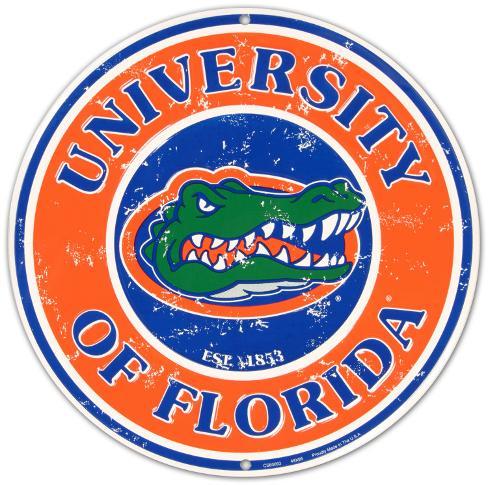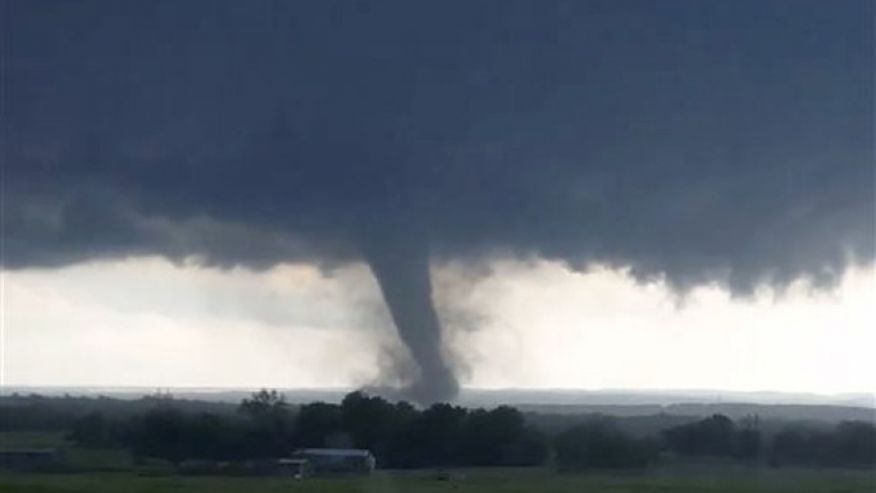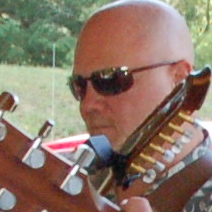Continued from Chapter 10: Alone No More
It is a curious fact that a graduate student can actually be at two different universities at the same time. Such was the case for me.
Although I had finished all my coursework in the spring semester of 1988 and passed the oral defense, I hadn’t yet completed the written thesis. This meant that I wouldn’t graduate until December, but wasn’t going to be drawing any stipend without registering for classes, so I had to get started on my next degree in the fall semester to keep paying the bills (and defer my student loans).
I mentioned in Chapter 10 that I’d opted to go to the University of Florida, but wasn’t immediately accepted. Graduate programs hedge their bets when selecting graduate students. In order to enter the PhD program, you have to pass a qualifying exam. If you don’t pass, the department can still give you a master’s degree…unless you already have one.
For the department, that means no degree, no positive metrics, no publishable research and a boatload of wasted resources.
I fell into the unfortunate category of already being ABD (All But Done) with my master’s degree, but never taking WVU’s qualifying exam (I had no intentions of pursuing a PhD there so couldn’t see the point of studying and taking an exam for nothing).
UF had no guarantee that I’d pass the qualifier and saw me as a risky prospect. Consequently, I had to wait until at least one of the graduating seniors who’d already been accepted…declined.
Another factoid about UF is that they had had so many prospective students ‘interview’ during spring break that they no longer paid travel expenses. That meant that my visit to the campus was on my own (very thin) dime. I flew down from Pittsburgh to Gainesville on the redeye from People’s Express (remember them) and slept on the living room floor of another graduate student’s apartment in a sleeping bag. I’d come to check out the “Center for Surface Science and Engineering”, but learned that it was a center in name only. There was no physical facility; just three labs on the fourth floor of the chemical engineering building.
The director of the program also happened to be the chairman of the department. He was an exceptionally enthusiastic and charismatic Indian named Dinesh Shah.
There was a period during that visit when I had a break between my meetings with the faculty and went back to the apartment to get something. I was running late and was walking as fast as I could. I remember having to stop at a corner to wait for the light to change and feeling light headed in the Florida heat. I had the conscious thought that I would either be late or not make it at all (faint). Forever after, there was always a particular moment in the spring when I would downshift from my northern, rushed pace into my adopted leisurely southern shuffle. This is how I learned to deal with the heat and humidity for my years in Florida.
There were no ‘red flags’ associated with the program and my host was more than accommodating (ever hear of “Gainesville Green”?) so when the offer finally came in the summer of 1988, I accepted.
Earlier that spring, I bought my first car. I had been driving my parents’ tired 1980 VW Rabbit in Morgantown and had made more bailing wire and adhesive tape repairs than I could count by then. Odd to think now that the car was only eight years old and had about 85,000 miles on it, but was, without a doubt, at the end of its useful life. It was impossible (for example) to change the turn signal or tail light bulbs because the only thing holding the lenses to the car was rust. Once disturbed, there was nothing to reattach them to. It looked a lot like this one:

Donna and I talked about what I should get to replace the Rabbit. At the time, the VW Fox wagon was the obvious replacement for the Rabbit hatchback and was so similar to it that I almost forgot it was a demo while I was driving it. We decided, though, that it just didn’t carry enough and started looking at compact pickup trucks (I guess living in West Virginia had shaped my views of automotive utility).
Although I can’t recall the exact details, we liked the Jeep Comanche. It was the right combination of power train, features and price. Unfortunately, the blue, long bed, 4WD, fully-loaded one I tested at the Morgantown dealership was a wee bit out of my price range. We spoke with the dealer and he located one more consistent with our economic situation at another dealership and quoted me a price and offered to have the truck brought down to Morgantown for me.
In the meantime, my mother reminded me that I could use the Pace Warehouse Club program to identify a fleet vehicle and maybe I might get a better deal that way. I only had a day or two to check it out so I went to the designated dealer, spoke with the designated fleet manager, searched their regional inventory system and found a truck that had more options than the one from the WV dealer for a lot less money. The only problem was that it was at a dealership about forty miles away.
I was by myself on that rainy day when I went to that dealership to check it out. It was everything I’d been told it was and even had a few features I didn’t even know were available (and the program price was still the lowest I’d been shown).
Obviously, this was the truck I should buy so I struck the deal and waited for the truck to arrive at the local dealership and get prepped so I could pick it up.
In the meantime, I called the original WV dealer to tell him that I’d found a better truck for a lower price and that I appreciated his efforts and was sorry he had the more basic truck shipped up to Morgantown for nothing.
He was not only angry, but went off on an extended tirade about how he knew I wasn’t going to go through with the deal and that was why he never had the truck brought up and that I wasn’t an honest and trustworthy person (I’m paraphrasing, but you get the gist).
I was completely caught off-guard and could only say over-and-over again, “I’m sorry you feel that way.”
Late in the summer of 1988, I packed all my worldly possessions in the bed of my shiny, new Jeep Comanche pickup truck and headed down the interstate to Florida.
I started to look for an apartment as soon as I arrived, but the rental market in Gainesville was completely different than Morgantown. I was accustomed to older single family homes near the campus being renovated to appeal to the students, but in Gainesville, there were no old homes to rent, there were only apartment buildings. Apartment buildings of every description all over the city. But, it was far more expensive to live in Gainesville than it was to live in Morgantown.
One thing was the same though, finding an apartment was a competitive endeavor. There were no vacancies near the campus and I had to go pretty far afield to find a suitable apartment.
I ended up in a one-bedroom apartment in the northeast section of Gainesville (UF is in the southwest portion), but I had a reliable car to commute to campus so that was no big deal (scroll left to see the apartment complex-my apartment was in the far right, rear corner not visible from the street).
My first semester (Fall of 1988) was spent either on core courses or finishing my WVU thesis in the Mac Lab on the UF campus. I had been given a list of edits to the draft thesis following my oral defense, so the process was pretty straightforward. Still, it took me most of the fall semester to get it together and I just bared got it to WVU before the deadline.
The last hurdle was getting my advisor’s signature. This had been a thorny issue for my roommate (who had the same advisor) because he refused to sign the dissertation until my roommate changed the acknowledgments because he didn’t think it was sufficiently complimentary.
Armed with the knowledge that my advisor was at least as concerned about how he would be characterized in the acknowledgements as he was about the technical merits, I worded my acknowledgment very carefully. Those who know me immediately recognize the reference to “a truly unique learning experience” as tongue-in-cheek, but my advisor was not among the in-crowd.
Since I was in Gainesville and Donna was still in Morgantown, I mailed the package containing my thesis and all requisite paperwork to her so she could hand-carry it to my advisor’s office for his signature and, subsequently to the dean’s office to be finalized and recorded.
Donna received the package at the end of the week and was to deliver it to my advisor’s office the following Monday (which was the deadline for that semester). By a simple twist of fate, Donna and my advisor happened to meet at the shopping mall on Sunday.
Donna mentioned to my advisor that she would be stopping by his office the next day so he could sign my thesis. He said that he had no intention of signing it until he’d read it in its entirety.
Donna explained that there were no changes except those that he and the committee had requested at the oral defense, but he resolutely refused to sign until he’d read the whole thing.
Donna was understandably exasperated and (without thinking) called him an asshole…. Moments later, she called me in tears from a phone booth at the mall to tell me that she had just called my advisor an asshole.
I maintained my composure (although it wasn’t easy) and told her not to worry about it, but to drop it off at his office first thing in the morning and make sure that the acknowledgment page was on top. There is nothing more we can do, but hope for the best.
Donna dropped the thesis off at his office before he arrived as I suggested and set off to her own office across campus.
By the time she arrived at her office, there was a message from my advisor’s administrative assistant that she could come pick up the signed thesis (roughly 15 minutes had elapsed).
I don’t know whether he’d had a change of heart or if he was really so shallow that all he wanted to see was the acknowledgment page, but the rest of the process was completed in short order and I received my MSChE on time in December of 1988.
My first year at UF was a little frustrating because I had to repeat all of the core courses I had already taken at WVU, but their perspective on the physics was fundamentally different. Whereas WVU emphasized the macroscopic world where Newtonian physics applies, UF taught the same courses using quantum mechanics and statistical ensembles. It was as though I’d never taken the classes before because nothing I’d learned up to that point was applicable. It was like having a wrench when you really needed a screwdriver.
I was academically challenged that first year at UF, but I sure couldn’t complain about the weather. In fact, it remains one of my favorite places because it has pine trees, oak trees and palm trees all in the same place. In addition, it has the four seasons I’m accustomed to, but not in the same proportion. By that I mean; there is an autumn (my least favorite season) during which the oak leaves change color, but they don’t fall to the ground all at once so there’s no leafy mess. Winter in Gainesville (by my standards) is nearly ideal. It lasts about a month with about 10 days where the temperature gets below freezing and one day of actual snowfall (which is over almost as soon as it begins). Spring comes early and the days are warm and dry. Summer, well…summer in Gainesville isn’t for everyone, but I rarely minded it. It is what you would expect, I suppose: hot and humid with afternoon thunderstorms that are as intense as they are regular (usually between 2:00 and 2:15 in the afternoon). One is well-advised not to be caught outside after lunch, but any shelter will do and there’s little risk of having to engage in a long, awkward conversation with a fellow meteorological refugee. Oh, did I mention that Gainesville is THE place to go if you want to get struck by lightning?
During my first year at UF, Donna finished up her coursework at WVU and moved down to Gainesville with me. But the one-bedroom apartment I had wasn’t really big enough for two people, so Donna started looking for a two-bedroom apartment (that we could afford).
That’s how we ended up in the fine little town of Melrose about twenty miles east of Gainesville.
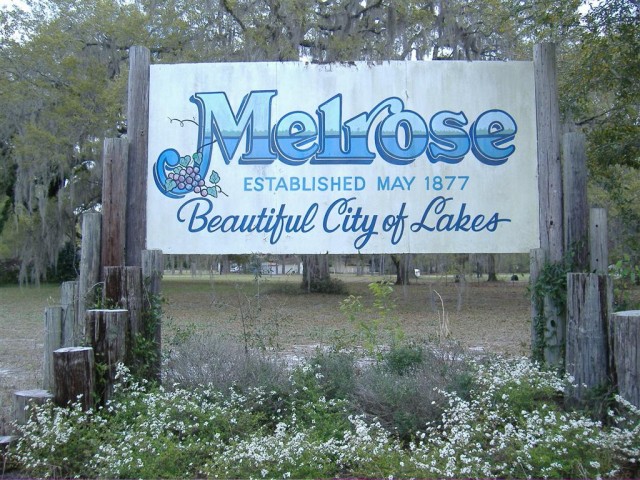
Melrose is an anomaly for a couple reasons: It straddles four different counties, so the laws and municipal services are anything, but clear. Also, it was (and still is twenty-five years later) very liberal which might not seem so odd were it closer to a major city or in any northern state. It is for the latter reason that I still refer to Melrose as “the blue spot in the red state”.
Donna and I rented a two-bedroom condominium in Melrose from 1989 to 1992 and in many ways, it was our first, real home/neighborhood/community (scroll left to see the little condo buliding-our unit was the second one from the right).
A curious fact; this was the first period in my life (since the age of fifteen) when I stopped writing music. (That’s why there aren’t any references to songs written in this period yet.) I didn’t complete a song from 1987 (when we were still in Morgantown) until I wrote “Waiting Its Turn” in 1990. Three years seemed like an eternity and I was quite conscious of the lack of desire to write music, so “Waiting Its Turn” was an equally conscious (deliberate) composition about what was going through my mind at the time.
The back story is that Donna and I had decided to go see Paul McCartney at Tampa Stadium in April of 1990 (probably for my twenty-sixth birthday). The tickets were over $100 each (!!) and I dragged my feet for a while, but in the end, we figured it was worth it.
I had never been to a concert that big before. We were in the upper tier of one end zone and the band was in the opposite end zone. We were in the venue, but about a quarter-mile from the band. Thank God Donna made me bring binoculars.
I will never forget the set up with the video screens and Paul’s piano on some sort of fork lift to lift him above and rotate him over the band. Oh, and the PA speakers at mid-field to help minimize the delay between what we could see and what we could hear. As much as I admire and respect Paul McCartney, that was a truly awful concert. But, as I was sitting there thinking ‘what an incredible rip-off’, the idea occurred to me that I hadn’t lost the ability to write music, I was only postponing it.
Anyone who knows me could be forgiven for assuming the reference to “Paul” singing his poem would be about Paul Simon, but it’s not; it’s about Paul McCartney.
With the ice broken (so to speak), I then wrote the instrumental “Twins” in honor of my mother and her identical twin. I don’t remember what the working title was, but the eventual name stuck because each movement in the song is exactly repeated.
The last song I wrote in 1990 was “Jesus Rides a Harley”. I don’t often reference spiritualism and when I do, it’s usually with tongue-in-cheek. So, the song is irreverent (sic) towards those with narrow concepts of faith in general and pretentious fundamental Christians in particular.
Much of the imagery in the song was real. I WAS at a motorcyclist’s funeral in Melrose that year just to show support for a local rider who had been killed. But I didn’t know him personally.
As I mentioned earlier in this chapter, I felt a sense of community in this town and Donna and I rode down to the cemetery to join about fifty or sixty other riders (suitably attired) for the internment.
The weather was also as ominous as the song suggests and I remember thinking ‘I wonder if we’re going to get home before this storm hits’.
That’s where the reality ends though. They were not close friends of mine and I wasn’t leaning on the ‘funeral tent pole’. I was at the back of the crowd and only knew one other person there. I do remember thinking though, ‘does everybody else know each other and, if so, are they wondering who the hell I am?’
That’s when I had my epiphany (sic) and the song pretty much wrote itself-with the following caveat: Donna is responsible for honing the final lyric when I was preparing to record it eight or nine years later. My original version was vague and suffered from ‘pronoun trouble’ that made the story too difficult to follow.
After this burst of three songs in 1990, I again went into a creator torpor that lasted long after I graduated and left Florida.
More about that in Chapter 12: Continental Ping Pong
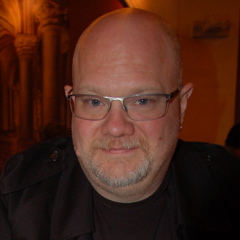



 vs.
vs. 